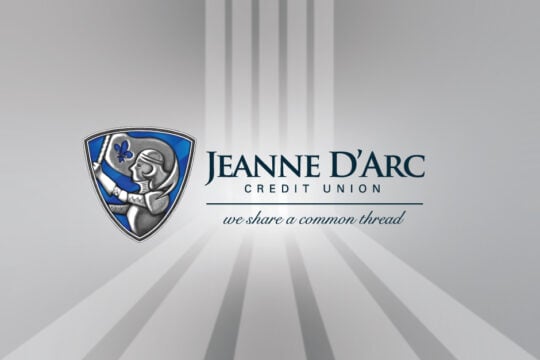
IRAs
Start investing in your future today
Retire in style
Individual Retirement Accounts (IRAs) are savings plans authorized by the Federal Government, with favorable tax arrangements to help you build a personalized retirement fund. We also offer education-focused savings accounts, and employee pension assistance accounts.
Compare your IRA options
-
Best for members who:
Best for members who:
-
Employment status
Employment status
-
Contribution limits
Contribution limits
-
Tax deductible contributions
Tax deductible contributions
-
Tax on withdrawals
Tax on withdrawals
- Request IRA information
Traditional IRA
-
Best for members who:
Want to save for retirement and pay taxes on your earnings until withdrawal
-
Employment status
IRA Owner, or spouse, must have received eligible compensation
-
Contribution limits
$7,000 per year (under 50)
$8,000 (over 50)
Tax year 2025
-
Tax deductible contributions
Depends on income
-
Tax on withdrawals
Taxable as income, and may be subject to a 10% early withdrawal penalty if under 59 1/2.
- Request IRA information
Roth IRA
-
Best for members who:
Want to save for retirement and pay contributions based on after-tax earnings
-
Employment status
IRA Owner, or spouse, must have received eligible compensation
-
Contribution limits
$7,000 per year (under 50)
$8,000 (over 50)
Tax year 2025
-
Tax deductible contributions
Not tax deductible
-
Tax on withdrawals
Tax free if 59½ or older, or meet exception requirements
- Request IRA information
Coverdell Education Savings Account
-
Best for members who:
Want to save for education
-
Employment status
N/A
-
Contribution limits
$2,000 per year per child (<18)
-
Tax deductible contributions
Not tax deductible
-
Tax on withdrawals
Tax free if used to pay for qualified education expenses
- Request IRA information
Simplified Employee Pension
-
Best for members who:
Are self-employed or work for someone who is
-
Employment status
Self-employed or work for someone who is
-
Contribution limits
Limited to the lesser of $69,000- or 25% of compensation for Tax year 2025.
-
Tax deductible contributions
Only for the employer
-
Tax on withdrawals
N/A
- Request IRA information
Traditional IRA
When you contribute to a Traditional IRA, you won’t pay taxes on earnings until you start making withdrawals. When you open a Traditional IRA, you may get immediate tax benefits.
- Must be employed to contribute to an IRA
- There is no maximum age for tax year contributions
- Maximum contribution for tax year 2024 for individuals under age 50 is $7,000.00. For individuals age 50 and older the maximum contribution for 2025 is $8,000.00 ($7,000.00 plus $1,000.00 “catch up”)
- Contributions may be tax deductible depending on income and if participant is in a workplace retirement plan
- Earnings grow tax deferred
- Withdrawals are taxable as “income” and may be subject to a 10% penalty by the IRS if funds are withdrawn prior to attaining age 59.5
- Required Minimum Distributions begin for those individuals turning age 73 in 2025 and beyond. Distributions will be calculated and are required to be withdrawn from the IRA before December 31 each year.
Roth IRA
Roth IRAs are similar to Traditional IRAs except that contributions are made from your after-tax earnings.
- Must be employed to contribute to an IRA
- Maximum contribution for tax year 2025 for individuals under age 50 is $7,000.00. For individuals age 50 and over, the maximum contribution is $8,000.00 ($7,000.00 plus $1,000.00 “catch up”)
- Contributions are not tax deductible
CESA
Coverdell Education Savings Accounts (CESA) were created to help parents and students save for anticipated education expenses.
- Does not require earned income to contribute; however, if the individual contributing to the Coverdell IRA does have earned income, it must be within IRS Guidelines (refer to IRS Pub.590)
- Maximum contribution per child (age 18 or younger) per tax year is $2,000.00
- Contributions are not tax deductible
- Withdrawals are tax free if used to pay for qualified education expenses
- All funds in a Coverdell ESA must be distributed to the designated beneficiary by 30 days after attaining age 30
- Jeanne D’Arc Credit Union offers IRA Statement Savings Accounts, IRA Money Market Savings Accounts or IRA Certificates of Deposit for your retirement savings
SEP
A Simplified Employee Pension (SEP) IRA is established by an employer for employees and can be a significant source of retirement income.
- Must be self-employed or work for someone who is
- Employer must make contributions for all eligible employees
- Union employees, non-resident aliens or employees who received $600.00 or less in compensation during the year may be excluded from eligibility
- The same percentage of compensation must be contributed for all eligible employees
- Contributions are limited to 25% of compensation with a maximum of $69,000 for tax year 2025
- Contributions to a SEP IRA are made only by the employer and are a tax deduction only for the employer
Transfers & Rollovers
There are two ways to move your IRA funds.
- A Trustee Transfer which is done between financial institutions, with the paperwork being initiated by the receiving financial institution. This is not a reportable transaction to the IRS.
- A Rollover is initiated when an individual makes a withdrawal by check from one IRA and deposits the funds into another IRA elsewhere within the 60 calendar day time limit. The IRS imposes a restriction of one rollover per individual per 365 days. This is a reportable transaction to the IRS and must be indicated on your tax return for the year in which the Rollover is processed. We can assist you with these transactions.
The best way to move funds from a former employer-sponsored retirement plan (i.e., 401(k), Profit Sharing, 457 Plan, etc.) to an IRA is by a Direct Rollover. A Direct Rollover is the direct payment of your vested interest in an employer-sponsored retirement plan to an IRA Trustee or Custodian for your benefit. You must initiate the rollover through the company that is handling your retirement plan. We can assist you in completing any documentation that is required by your former employer to initiate the process. Upon payout, you will receive a check from the employer plan manager that is made payable to “Jeanne D’Arc Credit Union FBO (for the benefit of) your name”. The check may either be mailed directly to Jeanne D’Arc Credit Union or to you. If the check is mailed to you, it is your responsibility to make sure the check is deposited into your Jeanne D’Arc IRA account.
IRA FAQs
No, there is no minimum age requirement to open an IRA account.
No. Unlike many financial institutions, Jeanne D’Arc does not charge annual maintenance fees for IRAs.
There are three different forms of IRAs:
- An IRA Certificate of Deposit (fixed rate of interest-terms ranging from 6 months to 60 months)
- A Retirement Statement Savings account (with a variable rate of interest)
- An IRA Money Market account (with a variable rate of interest)

Why Teens Saving Money Now Is a Total Power Move
If you’re like many teenagers, you might think you’re too young to even think about saving money. But the fact … Continue reading

Jeanne D’Arc Credit Union Earns 2025 Great Place To Work Certification™
LOWELL, MA (July 1, 2025) – Jeanne D’Arc Credit Union is proud to be Certified™ by Great Place To Work® … Continue reading

Jeanne D’Arc Credit Union Awards $20,000 in Scholarships
LOWELL, MA (June 16, 2025) – Jeanne D’Arc Credit Union awarded $20,000 in scholarships to members through their MoneyStrong and … Continue reading
